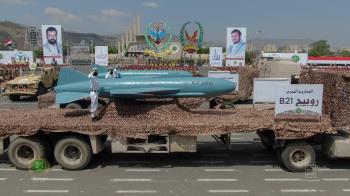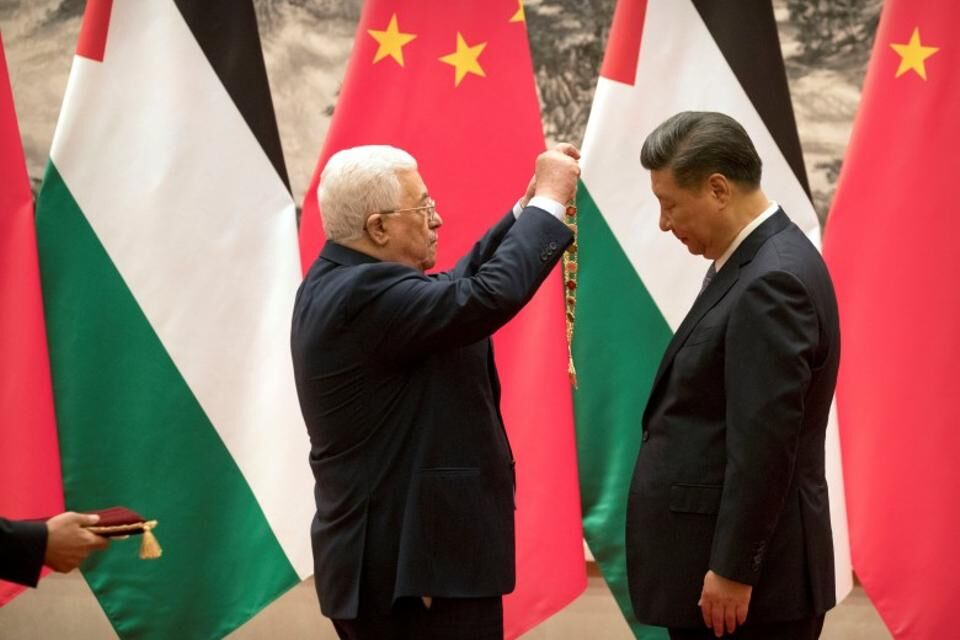Alwaght- Without any doubt, West Asian developments are among the most important changes the international system witnessed in recent decades. Due to West Asia’s geopolitical position, it can be suggested that the significance of these developments has redefined the foreign policy of some of the trans-regional powers towards this region. Meanwhile, the stances of China as an emerging influential power concerning West Asia is specifically important. With boost of Chinese place on the world stage, Beijing’s role playing in the geopolitically significant regions increases. West Asia is one of these regions that is increasingly captivating the Chinese attention and without any exaggeration, Beijing is turning into one of the influential variables shaping regional developments.
One of the most important crises in West Asia in the past few decades is the conflict between Palestine and the Israeli regime, which despite the presentation of international initiatives to end it, no practical action has been taken. Therefore, the Chinese have stepped into this very important dispute to end this crisis with their peace plans so that calm and peace can be established in this tense region. With the increase in Israeli adventures in the West Bank and the Gaza Strip, which has inflamed the occupied territories, China has also expressed great concern about tensions.
Chinese mediation
Chinese Foreign Minister Qin Gang recently said that his country encouraged the Palestinians and Israelis to take brave political stances and steps to resume the peace negotiations and that China was ready to facilitate the dialogue. In a phone conversation with his Israeli Counterpart Eli Cohen, Gang said that Beijing was concerned about the current tensions between this regime and Palestine and the present priority is to control the situation and prevent an escalation and the crisis from spinning out of control.
The Chinese FM added that all parties should maintain their calm and self-restraint and avoid radical and provocative words and actions, and the main way out of this situation is to resume peace talks and implement the “two-state solution.” He added that it is never late to do “the right job” and Beijing is ready to mediate the peace talks. According to the top diplomat’s remarks, China has no selfish interests in the Israel-Palestine conflict and only seeks to realize peaceful coexistence and maintain regional stability. Two weeks ago, when Israeli forces stormed the holy Al-Aqsa Mosque and injured and arrested hundreds of Palestinian worshipers, Chinese government asked Tel Aviv to avoid measures that fuel tensions.
Until last year, China had a passive stance towards the developments in Palestine, but with the changes and developments that occurred on the geopolitical arena after the start of the war in Ukraine, it became more focused on this conflict. President Xi Jinping of China, in the Arab-Chinese meeting held in Saudi Arabia in November 2022, supported the two-state solution and called for an end to the Israeli oppression and injustice against the Palestinians. Such stance in support of the Palestinians was unprecedented and showed that Beijing plans to play a significant role in the Palestinian dispute.
Preparing itself for world leadership in the next two decades, China is focusing on economy as the driving force guaranteeing this place and, thus, is seeking to make peace and stability in important parts of world, especially West Asia. This is because insecurity and instability are fatal for Chinese economic and trade growth and thus Beijing wants to end the world’s longest dispute.
Challenging the US hegemony
Last month, China brokered a détente agreement between Iran and Saudi Arabia, ending seven years of tensions. It intends to do the same in Palestine. By brokering unity between Iran and Arabs, the Chinese helped ease the tensions in West Asia to pave the way for massive presence in the Muslim world. China, which sees Arab countries a piece of its superpower status puzzle, pays special attention to important Arab cases to get Arab leaders’ support and satisfaction, and Palestinian cause is what they focus on to this end.
On the other hand, Beijing leaders have come to the notion that the Arab public are sensitive to the Palestinian cause and they need to determine their stance concerning Palestine if they want to satisfy the Muslim nations. Nearly 2 billion Muslim population is by itself an advantage for the Chinese and this capacity can be used to improve China’s place in the Muslim world.
China’s interest in engagement in Palestinian developments is examinable from another aspect. It is certain that the US over the past decades has been the leading actor in the Israeli-Palestinian dispute and blocked Palestinians from their stolen rights by backing the Israelis. By managing this crisis, Washington tried to preserve the Israeli security and used its veto right to block any foreign intervention in the conflict. It, actually, has proven to be a big obstacle ahead of settlement of this long-time dispute. Therefore, China, which has been wrestling with the US over the past year over a range of issues, is trying to challenge American hegemony in West Asia. At a time the US is stepping up its adventures in Taiwan and Korean Peninsula, the Chinese are trying to gain a toehold in the spheres of Washington influence to present an annoying force to the Americans.
By facilitating Iran-Saudi Arabia agreement, China sent the first signal to the White House, telling it that from now on, Beijing is the determining actor and will take the steam off the Americans. Washington officials have voiced their concerns about massive Chinese influence in the region. However, China is aware of the American differences with the Arab countries and is trying to powerfully enter these countries. The deeper Chinese influence becomes, the shallower the US influence grows in the Arab world. An example is the Saudi and Emirati policy over the past year. The leaders of these countries have treated Washington in a humiliating way and did not comply with its policies worldwide.
In Palestine, Beijing is trying to distance the US from conflict and pave the way for its superpowership by establishing peace in the occupied territories. The Chinese know very well that if they can end the Palestinian conflict, not only among the Islamic countries but also in the world they will immortalize their name as a conciliatory and stabilizing power. The world will develop an image of China as a country under whose management peace can prevail. On the opposite side, the world will look negatively to the US policies.
Respect for the principle of the sovereignty of countries, peaceful emergence as a world power and opposition to hegemony are among the strategies that Beijing has followed to manage international crises, and for this reason, so far, except for the negative view of China by the Americans who see Beijing as a threat to their hegemony, no negative view of China has been developed by other nations.
Despite China’s efforts to play a role in Palestinian developments, the Israeli officials are not interested in Chinese active presence in the occupied territories and Washington remains the biggest backer of Tel Aviv despite tensions between the two sides in recent months, something the Israelis admit. Therefore, the Israelis do not want to see a power other than the US getting involved in the Palestinian conflict, especially China that in the past few months adopted an approach to unite the ranks of Iran and the Arab states as Israel’s enemies.



























